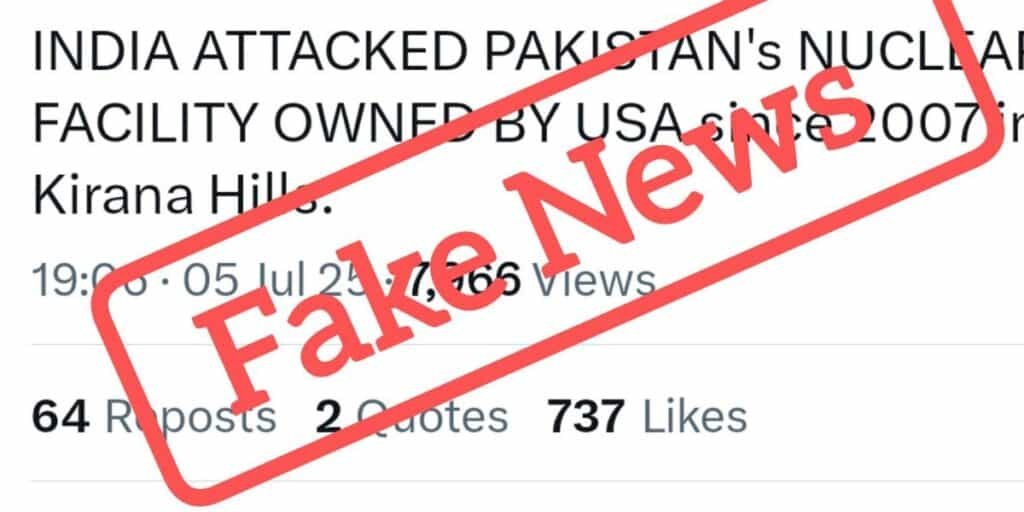Webdesk: Azaad fact check has identified another attempt at spreading misinformation on social media. Shockingly, this time the recycled disinformation comes from an NDTV-affiliated journalist.
On X, formerly Twitter, the India-based account an India-based account on the social media platform X (formerly Twitter) can be seen using the recurring “mud-slinging” tactic that relies on repeatedly recycling claims that have already been debunked.
This account can be identified as belonging to an Indian journalist affiliated with NDTV.
The journalist has posted feature sketches inaccurately attributed to Pahalgam attackers. The journalist has posted feature sketches falsely linked to the Pahalgam attackers.
This action was taken despite the Indian National Investigation Agency (NIA) having clearly stated that the sketches do not depict those involved in the incident.
Azaad Fact Check Debunks Recycled Disinformation from NDTV-Affiliated Journalist
— Azaad Fact Check (@azaadfactcheck) July 28, 2025
Azaad Fact Check has once again identified the spread of misinformation by an India-based X (formerly Twitter) handle belonging to a journalist associated with NDTV. This recurring "mud-slinging"… https://t.co/O5ObiXmzRc pic.twitter.com/Ai0YmozQyd
Moreover, the individuals depicted in these sketches were previously reported as being killed in an encounter in the year 2024. Interestingly, the reports were made by the same news outlet, which is now trying to resurrect them to link them to a new attack.
The NDTV claimed that it has received exclusive information from sources in intelligence agencies.
According to its article, “culprits of the Pahalgam attack, who were killed in Operation Mahadev in Kashmir, were hatching a big conspiracy. They were preparing for another attack.”
An NDTV-associated reporter has tweeted outdated sketches that are not associated with the Pahalgam attack over NIA certification. T
he same source reported those people dead in 2024, indicating a pattern of misinforming with researched, discredited histrionics.
Recycling discredited information to push a false narrative is a worrying trend. People must stay alert with official and credible information, particularly at times when people are not sure what is occurring, or there is an information flare-up occurring.
By consulting with confirmed news sources and trustworthy authorities or news channels that update with verified information, one can avoid information distortion and unreasonable panic.
False rumours are circulated on social media and elsewhere, usually without confirmation, and are often viral and distorted.
Remaining linked with credible sources will help to provide the audience with the correctly framed, timely, and responsible information.
Read more: Azaad Fact Check debunks false Indian claims on Pakistan-Azerbaijan fighter jet deal






